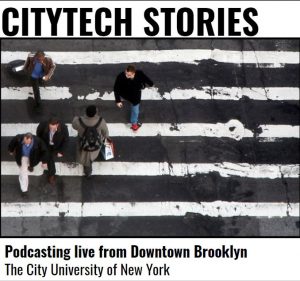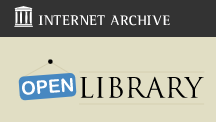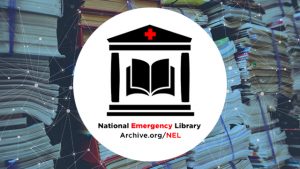Departments may consider courses that:
- Are new to using zero-cost O.E.R.
- Have high enrollment
- Will have wide application across multiple sections (useful to students and part-time teaching faculty)
OER at City Tech
 We’re excited to announce a new edition of CityTech Stories, the official podcast of the Ursula C. Schwerin Library. The podcast recently featured Prof. Colleen Birchett and Prof. Christopher Swift, who spoke of their experiences using Open Educational Resources (O.E.R).
We’re excited to announce a new edition of CityTech Stories, the official podcast of the Ursula C. Schwerin Library. The podcast recently featured Prof. Colleen Birchett and Prof. Christopher Swift, who spoke of their experiences using Open Educational Resources (O.E.R).
Through the Open Educational Resources Faculty Fellowship, participants get an in-depth look at the economics of the scholarly landscape. In the move towards open resources, faculty are encouraged to seek out material in their discipline through various OER repositories, and Open Access publications. In the podcast above, Prof. Colleen Birchett speaks about her own path towards implementing OER, for the course Home Away From Home: Stories from the Diaspora, and impacts on both course design and content.

An excerpt from her interview: “One of the limitations that I’ve faced as an instructor is the fixed content in a given textbook: someone else decides, and that’s their worldview, and their pedagogical view. Whose voices get heard and whose don’t?”
We’re so happy to present these excellent reflections, a window into the innovative pedagogy that continues to be inspired by the Fellowship. Thank you for listening!
The Internet Archive has just released a new trove of online content, in the form of what they call The Open Library – 1.2 million ebooks, easily accessible and entirely free. The long-running website is now calling itself the National Emergency Library – and in the COVID-19 environment, with  educators from graduate level courses to K-12 teaching online for the first time, the need for course materials and educational content has taken on a new urgency. Correspondingly, news of the Open Library has circulated far beyond the immediate library world, garnering press coverage from Vice, The Guardian, The New Yorker, and more.
educators from graduate level courses to K-12 teaching online for the first time, the need for course materials and educational content has taken on a new urgency. Correspondingly, news of the Open Library has circulated far beyond the immediate library world, garnering press coverage from Vice, The Guardian, The New Yorker, and more.
But, is this legal? Vice reports the free books as “controversial” – citing the pushback from some authors and (more vocally) publishers. The Authors Guild calls the site “piracy,” and furthermore “an excuse to push copyright law further out to the edges, and in doing so, harm authors, many of whom are already struggling.” The Association of American Publishers likewise calls the move “aggressive,” and joins the Society of Authors in threats of legal action.
The Internet Archive has written in response, “This was our dream for the original Internet coming to life: the Library at everyone’s fingertips.” Indeed, the site has grown vastly since 1996, when its main purpose was to archive the internet (or, “world wide web”) – something they achieved and made public through the Wayback Machine. The mission statement is as broad as its collections development, centered around a single, ambitious goal: “to provide Universal Access to All Knowledge.”
 So, is this a bold example of 21st century literary piracy, or a publicly responsive invocation of Fair Use? The New Yorker, citing the “sheer pleasure of browsing”, perhaps oversimplifies the case: “Libraries have copyright superpowers that they can use in an emergency.” In what sense, one might ask, is this a library? Users are given the unique opportunity to “sponsor” a book – by a one-time donation, making that book available to additional users.
So, is this a bold example of 21st century literary piracy, or a publicly responsive invocation of Fair Use? The New Yorker, citing the “sheer pleasure of browsing”, perhaps oversimplifies the case: “Libraries have copyright superpowers that they can use in an emergency.” In what sense, one might ask, is this a library? Users are given the unique opportunity to “sponsor” a book – by a one-time donation, making that book available to additional users.
Judging from the public response, there is a growing interest in openly-available resources – and it may be more of a challenge to return to the restrictive, traditional boundaries of copyright when the crisis is over.
© 2024 Open Educational Resources
Theme by Anders Noren — Up ↑